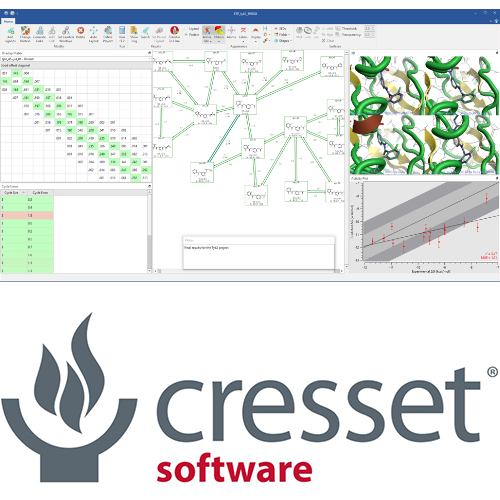Faster time to clinical candidate using FEP activity prediction now universally available in Flare™ V3

Cambridge, UK – 3 December 2019 – Cresset, innovative provider of software for molecule discovery and design, releases fully validated and accessible Free Energy Perturbation (FEP) calculations and new workflows in Flare V3, the class-leading solution for structure-based design. It is now commonly seen as best practice in lead optimization (LO) projects to use methods such as FEP to calculate binding energies and, therefore, predict compound activities, ahead of committing to time-consuming and expensive synthesis and wet lab screening. Adoption of these methods saves time, cost and resources, and enables better decision making in late-stage pre-clinical discovery.
“Working with Dr Julien Michel at the University of Edinburgh UK, an expert in free energy methods, we combined and enhanced open-source tools to generate a robust, user-friendly, fully validated and accessible implementation of FEP,” said Dr Mark Mackey, Chief Scientific Officer at Cresset. “This enables computational chemists to predict the activities of new molecules during drug discovery, significantly reducing synthetic chemistry costs and improving the time to clinical candidate.”
“I am delighted that the results from the Knowledge Transfer Partnership (KTP) / Innovate UK collaboration between my group and Cresset has been released within Flare V3,” said Dr Julien Michel, University of Edinburgh, UK. “The interface designed by Cresset significantly streamlines and improves the workflow for using FEP based on open source tools developed by academic groups. This will accelerate the use of these exciting new techniques in commercial and academic laboratories worldwide.”
























